North Carolina Senior Assistance Programs, Benefits, and Grants (2026)
 Senior Population: 2,693,622
Senior Population: 2,693,622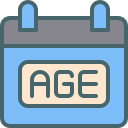 Median Age: 70.0
Median Age: 70.0 Veterans: 12.7%
Veterans: 12.7% Disability: 29.1%
Disability: 29.1%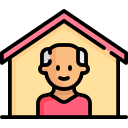 Renters: 20.0%
Renters: 20.0%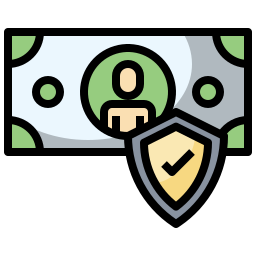 With Social Security Income: 75.2%
With Social Security Income: 75.2%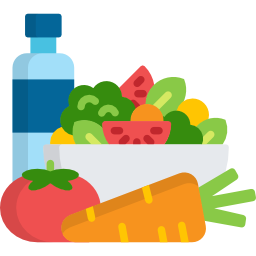 With Food Stamp/SNAP Benefits: 11.1%
With Food Stamp/SNAP Benefits: 11.1%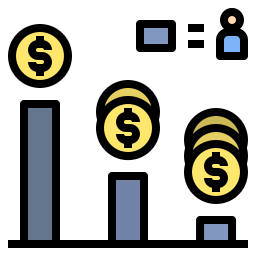 Below 100% of Poverty Level: 10.9%
Below 100% of Poverty Level: 10.9%Last updated:
Key takeaways
Many North Carolina households qualify for unclaimed senior benefits many older adults miss that can reduce monthly bills even when income seems “too high.”
- North Carolina has strong state, local, and nonprofit support for seniors, but many programs have waitlists and strict eligibility. Apply early and keep documentation ready.
- Start with your county Department of Social Services (DSS), the NC 211 helpline, and your local Area Agency on Aging (AAA) for personalized guidance.
- Free Medicare counseling through SHIIP can lower costs and help you avoid penalties and scams.
- For heating help, LIEAP opens early for priority households; for urgent energy crises, apply to the Crisis Intervention Program (CIP).
- Home repairs and accessibility upgrades are available through NCHFA’s Urgent Repair Program and Weatherization Assistance—funds can run out fast.
For stacking programs to reach $2,000+ monthly, see our senior benefits in 2026 guide.
If you need emergency help
- Life-threatening emergencies: Call 911.
- Mental health crisis or suicidal thoughts: Call or text 988 (24/7).
- Elder abuse, neglect, or exploitation: If immediate danger, call 911. Otherwise, contact your county DSS Adult Protective Services. Learn how to report at North Carolina DHHS Adult Protective Services.
- Disaster updates and shelter info: Visit ReadyNC (North Carolina Emergency Management).
- Not sure where to start: Call NC 211 (dial 2-1-1 or 888-892-1162) or visit NC 211 to find local food, housing, healthcare, and transportation help.
If you need help now—shelter, utilities, food, or urgent medical—start here: emergency assistance for seniors in North Carolina.
Table: Quick emergency contacts
If you or someone you care for is at risk of losing housing, emergency help for homeless seniors by state explains the fastest national entry points that also work in North Carolina.
| Need | Who to contact | Phone | Learn more |
|---|---|---|---|
| Immediate danger | 911 | 911 | — |
| Mental health crisis | 988 Suicide & Crisis Lifeline | 988 | 988 Lifeline |
| Elder abuse or neglect | County DSS Adult Protective Services | Varies by county | NC DHHS Adult Protective Services |
| General help locating services | NC 211 | 2-1-1 or 888-892-1162 | NC 211 |
| Disaster updates and shelters | ReadyNC | — | ReadyNC |
How to use this guide
![]()
Includes a quick action plan, document checklist, program cheat sheets, and a call log.
When you’re unsure which office handles a benefit, the North Carolina Area Agencies on Aging directory helps you find the right local starting point by county and region.
- Each section explains what programs do, who qualifies, what to expect, and how to apply.
- We link to official sources (state agencies, federal programs, and established nonprofits).
- Keep a folder with your ID, Social Security number, proof of income/resources, lease or mortgage, utility bills, and medical documentation. Many programs ask for the same paperwork.
If you’re relocating or helping family in another state, use our Area Agencies on Aging directory to find local help anywhere.
Official data note: According to the U.S. Census Bureau’s 2023 American Community Survey, about 1.9 million North Carolinians are age 65+ (17.7% of the population), and around 10.9% live below the federal poverty level. See U.S. Census Bureau ACS (Table S0103) for North Carolina.
Table: Programs by need (quick start)
| Your need | Start here | Highlights |
|---|---|---|
| Lower Medicare costs or drug plan help | Seniors’ Health Insurance Information Program (SHIIP) | Free counseling on Medicare, Medigap, Part D, fraud |
| Help paying for heat/cooling | LIEAP (seasonal) and Crisis Intervention Program (CIP) | LIEAP pays your heating vendor; CIP helps in emergencies |
| Rent help or affordable apartments | HUD Housing Choice Voucher/Public Housing (local PHAs) | Waitlists are common; apply to multiple PHAs |
| Home repairs and accessibility | NCHFA Urgent Repair Program; Weatherization Assistance | Urgent repairs (health/safety), ramps, heating/cooling |
| In-home care to avoid facility placement | Medicaid CAP/DA Waiver, Personal Care Services (PCS), PACE | Help with daily activities, care coordination |
| Food help | Food and Nutrition Services (SNAP), Congregate/Home-Delivered Meals | EBT card; free meals at senior centers or delivered |
| Phone service discount | Lifeline | Monthly discount on phone/internet service |
| Property tax relief | NC Homestead Exclusion & Circuit Breaker | Lowers or defers taxes on your primary home |
| Legal help | Legal Aid of North Carolina (Senior Law) | Housing, benefits, consumer, healthcare directives |
For a bigger picture of how these programs work together, the senior benefits in 2025 guide shows real examples of seniors stacking cash aid, food help, housing, and energy assistance.
Money and basic needs
For background on how Social Security and SSI fit together, our Social Security guide for seniors explains payment amounts, COLA changes, and common filing mistakes in plain language.
Supplemental Security Income (SSI)
- What it is: A monthly federal benefit for people 65+ or disabled with limited income and resources.
- 2026 payment note: The maximum federal SSI payment for 2026 is $994/month for an individual and $1,491/month for a couple (before any state supplement and depending on eligibility rules).
- How to apply: Online or by phone through the Social Security Administration.
- Learn more: Apply for SSI (SSA).
If you’re unsure whether you qualify or how SSI might change your other benefits, the Social Security and SSI guide for seniors walks through 2025 income limits, resource rules, and example approval timelines.
State/County Special Assistance (SA) and Special Assistance In‑Home (SA/IH)
- What it is: State benefit for low-income older adults who need help in an adult care home (SA) or to remain safely at home (SA/IH).
- What it helps with: Part of the cost of care in adult care homes or extra help so you can remain at home.
- How to apply: Through your county DSS. Program details at State/County Special Assistance (NC DHHS) and Special Assistance In‑Home (NC DHHS).
Because SA and SA/IH often combine with other crisis funds, the emergency assistance guide for seniors in North Carolina gives examples of how counties layer these programs with rent, utility, and food help.
One-time emergency help
- Options: Some counties offer emergency cash help through DSS; faith-based agencies (like Salvation Army) may assist with rent, utilities, or essentials. Call NC 211 to locate local funds.
- Salvation Army (North & South Carolina): Salvation Army Carolinas.
For extra backup when public funds are exhausted, charities that help seniors profiles nonprofits that provide one-time grants for rent, utilities, food, and medical bills.
Reality check: Funds are limited and often prioritized for households with disconnection or eviction notices. Bring proof.
Housing and rent assistance
For rent help, subsidized housing, emergency options, and county contacts, see housing assistance for seniors in North Carolina.
Housing Choice Voucher (Section 8) and Public Housing
- What it is: Federal rent subsidies or income-based apartments administered by local Public Housing Agencies (PHAs).
- Reality check: Waitlists can be long or closed. Apply to multiple PHAs.
- Find agencies: HUD PHA contact list for North Carolina.
To compare vouchers with other options like income-based apartments and emergency motel stays, our housing and rent assistance programs for seniors guide explains how each type of help works and typical wait times.
Adult Care Homes (Assisted Living)
- Day-to-day help: Help with bathing, dressing, meals, and supervision for people who don’t need nursing home care.
- Paying for it: Some residents qualify for State/County Special Assistance.
- Learn more: Adult Care Homes (NC Medicaid).
Area Agencies on Aging in North Carolina can also help you compare adult care homes with in-home options and connect you to benefits counseling before you sign a contract.
Property tax relief for homeowners 65+
North Carolina offers three main options. Apply through your county tax office—often by June 1 each year (county rules can vary).
Table: North Carolina property tax relief
| Program | Who it helps | What it does | Learn more |
|---|---|---|---|
| Elderly or Disabled Homestead Exclusion (G.S. 105‑277.1) | Age 65+ or totally & permanently disabled, with income under an annual limit | Excludes part of your home’s appraised value from taxation | NC Department of Revenue – Property Tax Relief |
| Homestead Circuit Breaker Deferment (G.S. 105‑277.1B) | Age 65+ or disabled; income under set limit | Limits taxes to a percentage of income and defers the rest (lien recorded) | NC Department of Revenue – Circuit Breaker |
| Disabled Veteran’s Homestead Exclusion (G.S. 105‑277.1C) | Honorably discharged disabled veterans or their unmarried surviving spouse | Excludes part of the home’s value regardless of income | NC Department of Revenue – Disabled Veterans |
If you file taxes, check whether you qualify for the Credit for the Elderly or Disabled.
Tip: Bring proof of age/disability and income. Ask your tax office which option is best for your situation.
For examples of how NC property tax relief fits into a full benefit plan, the senior benefits in 2025 guide shows how credits, deferrals, and exemptions reduce monthly housing costs for real seniors.
Home repairs, safety, and accessibility
If you’re deciding where to apply first, 2026 home repair grants for seniors explains which programs cover safety hazards, accessibility upgrades, and energy-related fixes.
North Carolina Housing Finance Agency (NCHFA) programs
- Urgent Repair Program (URP): Emergency health/safety repairs (e.g., failing septic, unsafe floors, dangerous heating systems). URP is typically delivered by local partners and structured as a deferred, forgivable loan. Current admin guidance describes forgiveness at $5,000 per year, and recent program materials reference assistance up to $15,000 per household (exact terms can vary by local administrator and program cycle).
- Essential Single-Family Rehabilitation (ESFR): Major repairs essential to safe living; delivered through local governments/nonprofits that partner with NCHFA.
If you’re comparing NCHFA help with other options, our home repair grant FAQs break down typical timelines, inspections, and approval odds using real-world scenarios.
NC DHHS Housing and Home Improvement
- What it offers: Help with minor repairs, accessibility modifications (ramps, grab bars), and security improvements for adults 60+. Local providers administer funds.
- Learn more: Housing & Home Improvement Assistance (NC DHHS) and Local Provider Directory (PDF).
You’ll find more detail on these DHHS programs and other local repair efforts in housing assistance for seniors in North Carolina, including links to county-level providers.
Weatherization Assistance Program (WAP)
- What it does: Free energy upgrades—insulation, air sealing, HVAC tuning—for eligible households to lower bills and improve comfort.
- Administered by: NC Department of Environmental Quality via local agencies.
For a big-picture look at how WAP and LIHEAP combine to cut bills, energy efficiency grants for seniors explains typical savings, income limits, and current rebate programs.
USDA Section 504 Home Repair (Rural)
- Grants (for age 62+ homeowners) and low‑interest loans to remove health/safety hazards.
To see how Section 504 compares with other repair loans and grants, financial assistance for home repairs walks through pros, cons, and when a grant-plus-loan combo makes sense.
Table: Home repair and accessibility programs (at a glance)
| Program | Typical help | Who qualifies | Where to apply |
|---|---|---|---|
| NCHFA Urgent Repair Program | Emergency health/safety fixes | Income limits; prioritize seniors | NCHFA URP |
| NCHFA ESFR | Major rehab for safe living | Income below 80% AMI | NCHFA ESFR |
| NC DHHS Home Improvement | Minor repairs, ramps, grab bars | Age 60+; income-based | DHHS Housing & Home Improvement |
| Weatherization (WAP) | Insulation, air sealing, HVAC | Income-based | NC DEQ Weatherization |
| USDA Section 504 | Grants/loans for hazards | Rural, owner‑occupied; age 62+ for grants | USDA RD North Carolina |
If you own your home and need safety fixes or accessibility upgrades, start with these home repair grants for seniors.
Not sure about eligibility, inspections, or timelines? Our home repair grants FAQs walk through common scenarios.
Reality check: These programs open and close as funds are used. Get on lists early and call back each season.
Utilities, energy, and phone/internet
Facing a shutoff notice or unsafe heat/cooling?
The toolkit includes a quick action plan, what to say when calling DSS and your utility company, plus a call log to track names, dates, and next steps.
Get the printable crisis-ready toolkit (PDF)
From GrantsForSeniors.org
Low-Income Energy Assistance Program (LIEAP)
- What it is: Seasonal one-time payment to your heating vendor.
- 2026 season timing: NC DHHS announced applications for households that are eligible and didn’t receive an automated payment could begin December 10, 2025 (funds are limited and county procedures vary).
- Priority windows: Many counties prioritize households with a person age 60+ and/or disability services early in the season before opening to all households.
For typical LIEAP amounts by state and examples of how one-time payments pair with weatherization upgrades, our energy assistance and efficiency grants for seniors guide is a useful comparison.
Crisis Intervention Program (CIP)
- What it is: Emergency help when you face a heating or cooling crisis (e.g., disconnection notice, unsafe indoor temps).
- Where to apply: Your county DSS.
When a shutoff notice is already on your door, our emergency utility bill help for seniors guide explains how CIP works alongside LIHEAP crisis funds and utility-company hardship programs.
Lifeline phone/internet discount
- What it does: Up to $9.25/month off phone or internet (more on qualifying Tribal lands).
Important (ACP): The FCC’s guidance states the Affordable Connectivity Program (ACP) has ended. If you previously received ACP, ask your provider about low-cost internet options and any hardship programs they offer. For details on combining Lifeline with low-cost internet plans and energy help, utility bill assistance for seniors breaks down current income limits and application timelines.
Utility company programs
- Duke Energy customer assistance and weatherization: Duke Energy Assistance Programs (search by state).
- Dominion Energy North Carolina electric help: Dominion Energy North Carolina.
- Your local electric cooperative may also have assistance—start at NC 211 or your utility’s customer assistance page.
The utility bill assistance for seniors guide also lists common types of company programs—like arrearage forgiveness and medical-need protections—so you know what to ask for when you call.
Tip: Ask your utility about medical need forms, payment plans, and third‑party notifications to avoid shut-offs.
To cut bills and prevent shutoffs, explore energy assistance and efficiency grants for seniors, including LIHEAP and weatherization.
Health coverage, care, and supports
Medicare help (free counseling)
- SHIIP (Seniors’ Health Insurance Information Program) offers unbiased help choosing Medicare, Medigap, Part D, and Medicare Advantage plans. They also screen for Medicare Savings Programs (QMB, SLMB, QI) to pay premiums and some cost-sharing.
- Contact: SHIIP (NC Department of Insurance). Phone: 855-408-1212.
The Medicare savings section of our senior benefits in 2025 guide shows how SHIIP counseling can uncover Medicare Savings Programs and Extra Help that lower premiums and drug costs.
Medicaid for seniors (Aged, Blind, Disabled – ABD)
- Helps pay Medicare premiums and may cover healthcare not covered by Medicare. Income and asset limits apply.
- Apply through your county DSS or online via ePass. Learn more: NC Medicaid (Beneficiaries) and NC ePass.
For a plain-English explanation of becoming “dual-eligible,” our dual-eligible Medicare and Medicaid overview in the senior benefits in 2025 guide breaks down how ABD Medicaid can free up cash by covering premiums and copays.
Home and community-based care
- Personal Care Services (PCS): Help with bathing, dressing, mobility at home or in adult care homes. Learn more: Personal Care Services (NC Medicaid).
- CAP/DA Waiver (Community Alternatives Program for Disabled Adults): In‑home services and case management to avoid nursing home placement. Learn more: CAP/DA (NC Medicaid).
- PACE (Program of All‑Inclusive Care for the Elderly): Team-based care including adult day health, primary care, therapies, and transportation for people 55+ who meet nursing home level of care and live in a PACE service area. Learn more: PACE in North Carolina (NC Medicaid). Phone (program info): 919‑440‑0331.
For more detail on CAP/DA, PCS, and related supports, the North Carolina senior assistance guide maps these services by region and explains typical waitlists.
Free and low‑cost clinics
- Find a free/charitable clinic: North Carolina Association of Free & Charitable Clinics – Clinic Directory.
- Find a Federally Qualified Health Center (FQHC): HRSA Find a Health Center.
- Examples:
- Shifa Free Clinic: Shifa Free Health Clinic (serves uninsured, limited income).
- Community Free Clinic (Cabarrus County): Hours & Location.
Alongside clinics and FQHCs, charities that help seniors highlights organizations that offer prescription help, medical bill support, and transportation to care.
Dental care
- Donated Dental Services (DDS) – Dental Lifeline Network NC: Comprehensive dental care by volunteer dentists for eligible seniors. See Dental Lifeline Network – North Carolina.
- NC Missions of Mercy (NCMOM): Free, large-scale dental clinics held at various times/locations. Check schedules: NC Dental Society Foundation – Missions of Mercy.
- Blue Ridge Free Dental Clinic (WNC): Blue Ridge Free Dental Clinic.
- Agape Dental Ministry (Catawba County): Services at Agape Dental Ministry.
For low-cost clinics, donated care, and emergency options, check our guide to dental grants in North Carolina.
You can also use nationwide programs for free and low-cost dental care for seniors, including DDS, clinics, and dental schools.
Tip: Dental waitlists can be long. If you have pain, ask about emergency slots.
Vision, hearing, and assistive tech
- NC Assistive Technology Program (NCATP): Device loans, demos, and reuse for mobility, hearing, and vision needs. Learn more: NC Assistive Technology Program (NC DHHS).
Some home modifications can pair with assistive technology, and energy efficiency grants for seniors explains when programs cover things like safer lighting or electrical upgrades along with other home improvements.
Transportation to medical visits
- Medicaid Non‑Emergency Medical Transportation (NEMT): Contact your county DSS to schedule rides. Learn more: NC Medicaid Transportation.
- Find My Ride NC: A statewide tool to find local transportation providers and paratransit options. Use Find My Ride NC.
For examples of paratransit options, volunteer driver programs, and gas-card help beyond Medicaid rides, transportation support for seniors is a good companion resource.
Table: Health coverage and care at a glance
| Need | Program | What it does | Where to start |
|---|---|---|---|
| Medicare choices & savings | SHIIP | Free counseling; MSP screening | SHIIP (NC DOI) |
| Help with Medicare costs | QMB, SLMB, QI | Pay Part B premium and/or cost-sharing | Apply at county DSS |
| Full Medicaid (ABD) | NC Medicaid | Health coverage for low-income seniors | NC Medicaid – Beneficiaries |
| In‑home supports | PCS, CAP/DA | Help with daily activities; avoid facility placement | NC Medicaid PCS / CAP/DA |
| Team-based all-inclusive care | PACE | Adult day health, primary care, transport | PACE in NC |
| Medical transport | NEMT | Rides to covered appointments | County DSS |
| Low/no-cost clinics | FQHCs & free clinics | Primary care, pharmacy, some specialty | NCAFCC Directory / HRSA Finder |
Food and nutrition
- Food and Nutrition Services (SNAP/EBT): Monthly benefit to buy groceries. Older adults can have simplified calculations for medical expenses. Apply online at ePass or through your county DSS. Learn more: Food and Nutrition Services (NC DHHS). NC EBT Customer Service: 866‑719‑0141.
- Congregate and Home‑Delivered Meals: Free meals at senior centers and Meals on Wheels at home (often 5 days/week). Learn more and locate providers: Nutrition—Congregate & Home Delivered Meals (NC DHHS) and Meals on Wheels America – Find Meals.
- Senior Farmers’ Market Nutrition Program (SFMNP): Seasonal coupons for locally grown produce at participating markets. Learn more: SFMNP information (NC DHHS).
For SNAP, senior food boxes, farmers’ market coupons, and home-delivered meals, see food programs for seniors.
Tip: Food banks can help immediately while benefits are pending. Use NC 211 or Feeding America’s Food Bank Locator to find locations near you.
Transportation and getting around
- Elderly & Disabled Transportation Assistance Program (EDTAP): County-run, demand-response rides for seniors to medical visits, shopping, and senior centers (availability varies). Start with your local transit agency.
- Find My Ride NC: Plan trips and find providers statewide, including paratransit and volunteer driver programs. Visit Find My Ride NC.
- Area Agencies on Aging: Many coordinate volunteer rides and travel vouchers. Find your AAA below.
For paratransit, non-emergency medical rides, and fare discounts, start with transportation support for seniors.
Reality check: Rides must be booked in advance. Ask about eligibility, trip limits, and no‑show policies.
Work, money management, and taxes
- Senior Community Service Employment Program (SCSEP): Paid part‑time training for jobseekers 55+ with limited income. Find providers: DOL SCSEP Finder.
- Free tax preparation: IRS Volunteer Income Tax Assistance (VITA) and AARP Foundation Tax‑Aide. Use the IRS VITA Locator or AARP Tax‑Aide Locator.
- Avoid scams: See NC Department of Justice – Consumer Protection and report fraud. Medicare fraud help via SHIIP and the Senior Medicare Patrol.
If you’re trying to see how work income, tax credits, and benefit programs fit together, the senior benefits in 2025 guide includes sample budgets and scenarios for different income levels.
Legal help and advocacy
Before sharing documents or paying any “processing fee,” senior scams and fake grant warning signs can help you avoid common fraud patterns that target older adults.
- Legal Aid of North Carolina – Senior Law Project: Free civil legal help for eligible seniors (healthcare coverage, housing, consumer issues, benefits, advance directives). Learn more: Legal Aid of NC – Seniors.
- Long-Term Care Ombudsman: Advocates for residents in nursing homes and adult care homes. Learn more: Long-Term Care Ombudsman Program (NC DHHS).
- Advance directives: Download state forms and get help through hospitals, SHIIP, or Legal Aid.
Many of the organizations in charities that help seniors also offer legal clinics, scam-prevention workshops, or referrals that can complement help from Legal Aid and ombudsman programs.
Inclusive supports: seniors with added barriers
When traditional programs don’t fit your situation, nonprofits that help seniors with housing, bills, and healthcare can provide targeted help for specific barriers and urgent gaps.
Veterans
- NC Department of Military & Veterans Affairs: Benefits help, housing resources, and referrals. See Housing Assistance for Veterans (NC DMVA).
- Supportive Services for Veteran Families (SSVF): Short‑term help with rent, utilities, and rapid rehousing. In NC, see Volunteers of America Chesapeake – Veteran Services.
- NC Heroes Fund: Emergency financial aid for veterans facing hardship. Apply: North Carolina Heroes Fund.
- VA healthcare and pensions: U.S. Department of Veterans Affairs – VA.gov. For local guidance, contact your county Veterans Service Office.
For veterans at risk of homelessness or already unhoused, emergency help for homeless seniors by state points to SSVF providers, VA resources, and local rehousing programs.
LGBTQ+ seniors
- SAGE National LGBTQ+ Elder Hotline: 877‑360‑LGBT (5428).
- Local community centers may offer social groups, benefits help, and legal clinics. Try NC 211 to find nearby LGBTQ‑friendly services. National resource: SAGE USA.
Reality check: If you’ve faced bias, ask your AAA or SHIIP for affirming providers. You have the right to equal treatment in housing and healthcare.
Several organizations in our charities that help seniors guide partner with LGBTQ-affirming centers and hotlines that understand the specific barriers older LGBTQ+ adults face.
Seniors with disabilities
- Medicaid CAP/DA and PCS can provide in‑home help. See CAP/DA and PCS info above.
- NC Assistive Technology Program: Device loans, reuse, and home tech solutions (NC DHHS – NCATP).
- Paratransit: ADA paratransit through local transit providers; Find options via Find My Ride NC.
The senior benefits in 2025 guide also shows how disability benefits, Medicaid waivers, and housing help can work together for seniors with significant health needs.
Tribal members
- Title VI Native American Aging Programs: Tribes may offer congregate meals, home-delivered meals, transportation, and case management for elders. Find a Title VI program: ACL – Older Indians, Alaska Natives & Native Hawaiians.
- Indian Health Service (Nashville Area) serves NC tribes; for the Western region, see Cherokee Indian Hospital Authority (EBCI).
- Contact your tribal office for elder services and benefits coordination.
For tribal elders navigating both tribal and state systems, emergency help for homeless seniors by state includes national contacts and tips for coordinating with tribal housing and aging services.
Rural seniors
Because rural areas often lack contractors and funds, home repair grants for seniors explains how USDA programs, NCHFA initiatives, and nonprofit repair teams work together in small communities.
- Home repairs: USDA Section 504 and NCHFA programs can be critical where contractors are scarce.
- Healthcare access: Use HRSA Find a Health Center for FQHCs with sliding fees and telehealth options.
- Internet access: Lifeline can reduce phone/internet costs. ACP ended in 2024 unless renewed; check provider low‑cost plans like Spectrum Internet Assist. Also see EveryoneOn for low‑cost offers.
Find classes, meals, and social activities near you with our directory of senior centers in North Carolina.
Resources by region (where to get local help)
- Area Agencies on Aging (AAAs): Connect to local meal programs, caregiver support, transportation, and case management. Find your AAA via NC DHHS – Area Agencies on Aging.
- County Departments of Social Services (DSS): Apply for Medicaid, SNAP, LIEAP/CIP, and Special Assistance. Find your county DSS via NC DHHS – County Directory.
- NC 211: Dial 2‑1‑1 or visit NC 211 for local shelters, food pantries, and utility help.
- Transit providers: Search by county at Find My Ride NC.
In the Charlotte area, our Charlotte senior assistance page lists local offices, phone numbers, and programs.
Tip: Ask your AAA for a comprehensive assessment. Many services are funded by the Home and Community Care Block Grant (HCCBG) and have waitlists.
Want a simple one-page next steps plan?
Print the toolkit’s quick action plan and document checklist to keep everything organized while you apply.
Frequently asked questions (FAQs)
For quick clarity on eligibility rules and common pitfalls, senior benefits and grants FAQs with real answers covers practical scenarios seniors run into when applying.
- How do I apply for Medicaid or Medicare Savings Programs in North Carolina?
Start with county DSS or NC ePass; call SHIIP for Medicare cost screening. - I can’t afford my heat—what should I do first?
If you have a shutoff notice or medical risk, apply for CIP at DSS. For seasonal help, apply for LIEAP as early as your county allows. - What if the Section 8 waiting list is closed?
Apply to multiple PHAs and consider public housing and affordable housing owned by nonprofits. Ask your AAA and 211 about rental assistance funds. See HUD PHA contacts for North Carolina. - Can I get help to stay in my home instead of going to a facility?
Yes. Ask about CAP/DA (Medicaid waiver), Personal Care Services, and PACE. If you don’t qualify for Medicaid, talk to your AAA about HCCBG services or private-pay options. See CAP/DA and PACE. - Are there any programs for home repairs like ramps and heating systems?
Yes—NCHFA’s Urgent Repair Program and ESFR, Weatherization (NC DEQ), and USDA Section 504 in rural areas. See NCHFA URP, ESFR, Weatherization, and USDA Section 504. - Where can I get free or low-cost dental care?
Start with Dental Lifeline Network (DDS) in NC and NC Missions of Mercy clinics. Also check the NC Association of Free & Charitable Clinics directory for dental sites. - How can I lower my property taxes?
If you’re 65+ or disabled, ask your county tax office about the Homestead Exclusion, Circuit Breaker Deferment, or (for qualifying veterans) the Disabled Veteran’s Exclusion. See NC Department of Revenue – Property Tax Relief programs. - Do I get a discount on phone or internet service?
Lifeline may reduce monthly costs. ACP has ended per FCC guidance; ask your provider about low-cost plans. - Who can help me pick a Medicare plan and avoid scams?
SHIIP counselors provide free, unbiased help. They can also check your eligibility for Extra Help (Part D) and MSPs. Contact SHIIP (855‑408‑1212). - Where do I report elder abuse or a suspicious caregiver?
If immediate danger, call 911. Otherwise, report to your county DSS Adult Protective Services. Learn signs and how to report at NC DHHS Adult Protective Services.
Additional program details and official sources
- North Carolina Division of Aging & Adult Services (DAAS): Programs & provider directories (NC DHHS – Aging and Adult Services).
- Home and Community Care Block Grant (HCCBG): Funds many local senior services via AAAs (NC DHHS – HCCBG).
- Long-Term Care Ombudsman Program: Resident advocacy (NC DHHS – Ombudsman).
- SHIIP (Medicare counseling): NC Department of Insurance – SHIIP.
- Medicaid programs: NC Medicaid Beneficiaries; ePass application portal.
- Transportation: Find My Ride NC; NCDOT Public Transportation Division.
- Food help: Food and Nutrition Services (SNAP) – NC DHHS; SFMNP; Congregate & Home-Delivered Meals (NC DHHS).
- Housing repair: NCHFA URP; NCHFA ESFR; NC DEQ Weatherization; USDA Section 504.
- Energy help: LIEAP; Crisis Intervention Program (CIP) – both via NC DHHS.
- Phone/internet: Lifeline (NC DHHS) and Lifeline (USAC); ACP status (FCC ACP).
- Veterans: NC DMVA Housing Assistance; SSVF in NC (Volunteers of America Chesapeake); NC Heroes Fund.
- Dental: Dental Lifeline Network – NC; NC Dental Society Foundation – Missions of Mercy; NCAFCC – Clinics.
- Clinics: HRSA Find a Health Center; NCAFCC – Find a Clinic.
- Assistive tech: NC Assistive Technology Program (NC DHHS).
- Legal help: Legal Aid of North Carolina – Seniors; NC DOJ – Consumer Protection.
- Elder abuse: NC DHHS – Adult Protective Services.
- Disaster: ReadyNC (NCDPS).
Table: Who to call first (by topic)
| Topic | Best first call | Alternate |
|---|---|---|
| Unsure where to start | NC 211 (2‑1‑1) | Your AAA |
| Medicare costs & plans | SHIIP (855‑408‑1212) | Your AAA |
| Medicaid, SNAP, LIEAP/CIP | County DSS | NC ePass (online) |
| Home repairs & safety | NCHFA local partner | DHHS Home Improvement providers |
| Transportation | Find My Ride NC | County transit office |
| Veteran benefits | County Veterans Service Office | NC DMVA |
| Legal issues | Legal Aid of NC | Long-Term Care Ombudsman (facility issues) |
Browse all categories—housing, healthcare, utilities, food, and more—on the Grants for Seniors home page.
Reality checks, warnings, and tips
Before you accept repair funding or sign paperwork, grant vs loan rules seniors should know explains liens, repayment terms, and what “forgivable” really means.
- Expect waitlists. Many housing and repair programs fill quickly. Apply early each year and re‑confirm your place on the list. While you wait on approvals, these charities that help seniors may offer one-time rent, utility, or food assistance.
- Keep copies of everything. Store letters, applications, and names/dates of people you spoke with.
- Beware of fees. Legitimate benefit programs don’t charge you to apply. If someone demands payment upfront to “get you faster service,” it’s a red flag.
- Re‑evaluate annually. Medicare plans, property tax relief, and energy programs often require yearly action.
- Ask for reasonable accommodations. If you have a disability, agencies must provide accommodations (alternative formats, assistance completing forms, interpreter services).
Disclaimer
We work to keep this guide accurate and up to date, but programs can change, close, or pause funding. Always confirm details with the official agency or program link provided here.
Resources (official links)
For comparable official-link roundups beyond North Carolina, 2026 state-by-state senior assistance guides collects the latest program directories by state.
- NC DHHS – Aging and Adult Services: https://www.ncdhhs.gov/divisions/aging-and-adult-services
- Area Agencies on Aging directory: https://www.ncdhhs.gov/divisions/aging-and-adult-services/area-agencies-aging
- NC Medicaid (beneficiaries): https://medicaid.ncdhhs.gov/beneficiaries
- NC ePass (apply for benefits): https://www.ncdhhs.gov/assistance/epass
- SHIIP (Medicare counseling): https://www.ncdoi.gov/shiip
- LIEAP (energy help): https://www.ncdhhs.gov/divisions/social-services/energy-assistance/low-income-energy-assistance-lieap
- Crisis Intervention Program (CIP): https://www.ncdhhs.gov/divisions/social-services/energy-assistance/crisis-intervention-program
- Lifeline in NC: https://www.ncdhhs.gov/divisions/social-services/county-staff-information/other-programs/lifeline-and-link-programs
- Lifeline (USAC): https://www.lifelinesupport.org
- FCC ACP status: https://www.fcc.gov/acp
- NCHFA Urgent Repair Program: https://www.nchfa.com/current-homeowners/repairing-your-home/urgent-repair-program
- NCHFA ESFR: https://www.nchfa.com/current-homeowners/repair-your-home/single-family-rehabilitation-program
- Weatherization Assistance (NC DEQ): https://deq.nc.gov/energy-climate/energy-efficiency/weatherization-assistance-program
- USDA Section 504 (NC): https://www.rd.usda.gov/programs-services/single-family-housing-programs/single-family-housing-repair-loans-grants
- Adult Care Homes: https://medicaid.ncdhhs.gov/providers/programs-services/long-term-care/adult-care-homes
- Personal Care Services: https://medicaid.ncdhhs.gov/providers/programs-services/long-term-care/personal-care-services
- CAP/DA: https://medicaid.ncdhhs.gov/providers/programs-and-services/long-term-care/community-alternatives-program-cap
- PACE: https://medicaid.ncdhhs.gov/providers/programs-services/long-term-care/program-of-all-inclusive-care-for-the-elderly
- Free & charitable clinics (NCAFCC): https://ncafcc.org/our-clinics/
- HRSA Health Centers: https://findahealthcenter.hrsa.gov
- Dental Lifeline Network – NC: https://dentallifeline.org/north-carolina/
- NC Missions of Mercy: https://www.ncdental.org/foundation/missions-of-mercy
- NC Assistive Technology Program: https://www.ncdhhs.gov/assistance/assistive-technology
- SNAP (Food & Nutrition Services): https://www.ncdhhs.gov/assistance/low-income-services/food-nutrition-services-food-stamps
- Congregate & Home-Delivered Meals: https://www.ncdhhs.gov/assistance/adult-services/nutrition-congregate-home-delivered-meals
- Find My Ride NC: https://findmyride.nc.gov
- HUD PHA contacts (NC): https://www.hud.gov/program_offices/public_indian_housing/pha/contacts/nc
- NC DMVA Housing for Veterans: https://www.milvets.nc.gov/services/housing-assistance
- SSVF (VOA Chesapeake – NC): https://www.voachesapeake.org/services/veteran-services/
- North Carolina Heroes Fund: https://www.ncheroes.org/apply-for-assistance/
- Legal Aid of North Carolina – Seniors: https://www.legalaidnc.org/what-we-do/civil-legal-services/senior-law-project
- NC DOJ Consumer Protection: https://ncdoj.gov/protecting-consumers/
- Adult Protective Services: https://www.ncdhhs.gov/assistance/adult-services/adult-protective-services-aps
- ReadyNC: https://www.readync.gov
- U.S. Census ACS data (S0103): https://data.census.gov
About this guide
by the GrantsForSeniors.org Editorial Team
The GrantsForSeniors.org editorial team has been building benefit and assistance resources for seniors nationwide since 2020. We research programs across all 50 states by reviewing government websites, checking agency updates, and gathering information from available sources.
Our Commitment to You:
- Experience & Expertise: The information in this guide is compiled and reviewed by a team with experience in senior services and financial aid programs. We are committed to sharing our knowledge to help you find the support you need.
- Authority & Trust: We rely on verified sources, including government agencies, non-profit organizations, and official program websites, to ensure the accuracy of our content. Our goal is to be a trusted authority you can rely on for credible information.
- Clarity & Accessibility: We understand that seeking financial assistance can be challenging. This guide is designed to be clear and easy to understand, breaking down complex topics into actionable steps.
While we work hard to provide the most accurate information available, please note that program details and eligibility requirements can change. We recommend always checking with the official program source or agency website for the most current information, as we are not official agencies but rather compile available information.
- Last Updated: February 2026
- Sources Verified: February 2026
- Next Review: August 2026
If you find outdated information, discover new resources, or have questions, please contact us at info@grantsforseniors.org. We’re here to help seniors find resources that can make a real difference in their daily lives.


 Data is taken from 2024 (latest): ACS 1-Year Estimates Subject Tables.
Data is taken from 2024 (latest): ACS 1-Year Estimates Subject Tables.

